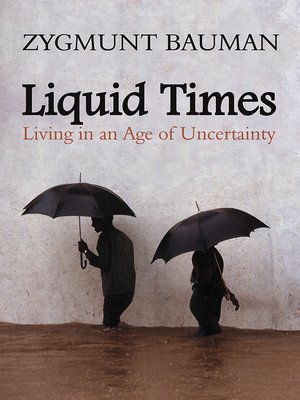Bauman Postmodern Ethics Pdf Creator
This paper analyzes the impact of the idea of accountability on education. It considers the kind of relationships that are promoted or produced by the culture of accountability, both in order to understand what kind of relationships are made possible and to understand what kind of relationships are made difficult, or even impossible, as a result of the accountability regime. The paper explores how the managerial uses of the idea of accountability have become pervasive in contemporary education and how this has changed relationships among students, parents, teachers, and the state. Ultimately, accountability erodes relationships of responsibility. Zygmunt Bauman's “postmodern ethics” is used to gain a detailed understanding of why it has become so much more difficult to develop relationships of responsibility under the accountability regime. Bauman's proposal that we should take responsibility for our responsibility also suggests a starting point from which the democratic potential of accountability might be regained.
Bauman Postmodern Ethics Pdf Creator Free
In his later writings, Bauman explores the possibilities for ethics in a more “postmodern” social world. Postmodernity and Liquid Modernity. In the 1980s and 1990s, Bauman was known as a key theorist of postmodernity. Using the first novel of Suzanne Collins’s Hunger Games trilogy as a case study, this paper proposes a heuristic that borrows from the postmodern (or “liquid modern”) ethics of sociologist Zygmunt Bauman. Bauman Postmodern Ethics Pdf Reader. 4/24/2017 0 Comments Zygmunt Bauman - Wikipedia. Da Wikipedia, l'enciclopedia libera. The term postmodern was first used around the 1880s. John Watkins Chapman suggested 'a Postmodern style of painting' as a way to depart from French. Powered by Create your own unique website with customizable templates.



This paper discusses a `postmodern’ alternative to business ethics in the light of two authors: Zygmunt Bauman and Michel Foucault. Despite their different usage of the concepts `ethics’ and `morality', both offer an approach to ethics that avoids the problems of a self-enclosed subject inherent in liberal as well as in communal theories.
Bauman and Foucault demonstrate how the continuation of social dialogue suffers from the postulation of fixed individual and organizational identities. Managers and other participants cannot formulate ethical rules on their own, but neither can they come together as a community without tensions and difference. Instead, embodied engagement in the reciprocal play of interpretations and influences keeps us ethically attuned to the limits of reason. Previous article in issue. Next article in issue.
Most Viewed News
- Belkin Wireless Router Ce0560 Manual Dexterity
- Monkey Island Keygenguru
- Download Save Game Yugioh Forbidden Memories Full Card Art
- Rapidshare Sia Breathe Me Lyrics
- Codename Panzers Phase Ii Download Italc
- Adobe Photoshop Cs10 Free Download Full Version
- Evil Dead 2013 Movie Free Download In Hindi Mp4
- Aldl Gm Software Release
- George Harrison Living In The Material World 720p Torrent
- Silver Game Patch Windows 7
- Ford Gum Machine Serial Numbers
- Bloods Gang Members